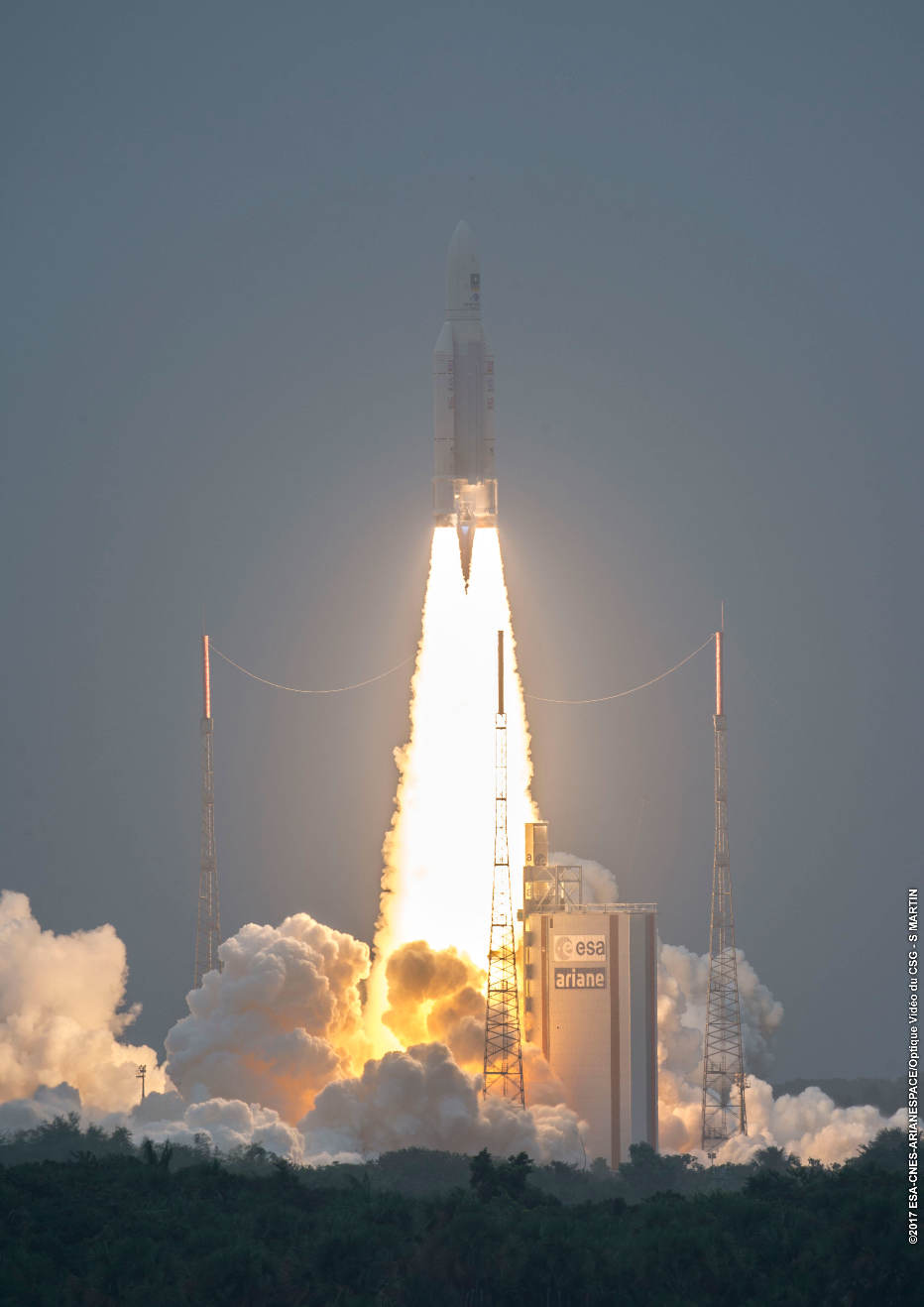ArianeGroup has announced a €1bn order for a final batch of 10 Ariane 5 ECA launchers as it ramps up for the first flight of Ariane 6 in mid-2020.
ArianeGroup and its Arianespace subsidiary have announced a €1bn order for a final batch of 10 Ariane 5 ECA launchers. The 10 launch vehicles covered by this “PC batch” will be deployed from the Guiana Space Centre beginning in 2020, following the launch of the 18 Ariane 5s ordered in 2013 (the “PB+ batch”).
With this latest order, there are now 23 Ariane 5 launchers in production or to be produced, from the PB+ and PC batches.
The final order coincides with the ramp-up for the next-generation Ariane 6, which is scheduled to make its first flight in mid-2020, reaching full capacity in 2023. The 10 additional Ariane 5s will be launched from 2020, in parallel with Ariane 6 (14 Ariane 6 launches are planned between 2020 and 2022).
In 2017, in addition to adopting a new governance structure alongside ArianeGroup, Arianespace carried out 11 successful launches and signed 19 new launch contracts, including three for Vega C and two for Ariane 6. A total of 20 satellites were placed in orbit, including five dual missions with Ariane 5. Arianespace’s order book in early 2018 stood at €5bn, comprising 58 launches for 29 customers, broken down as follows (by value):
-
34% government, 66% commercial,
-
40% for GTO missions and 60% for non-GTO missions,
-
62% for telecommunications, 24% for Earth observation, 7% for navigation, and 7% for science and technology.
Arianespace has identified 14 launches in 2018. If all 14 are performed this year, it will set a record for the Arianespace family of three launchers. Up to seven Ariane 5 launches are scheduled, including up to five dual commercial launches into geostationary transfer orbit; the first is scheduled for 25th January with the SES-14 and Al Yah 3 satellites.
The coming year will also see two important institutional launches, with the third and final Galileo launch using an Ariane 5 ES and the BepiColombo planetary exploration mission. Up to four Soyuz flights are scheduled, including launches for the O3b/SES and OneWeb constellations, along with three Vega launches, carrying a science satellite (ADM Aeolus for ESA) and two Earth observation satellites.

